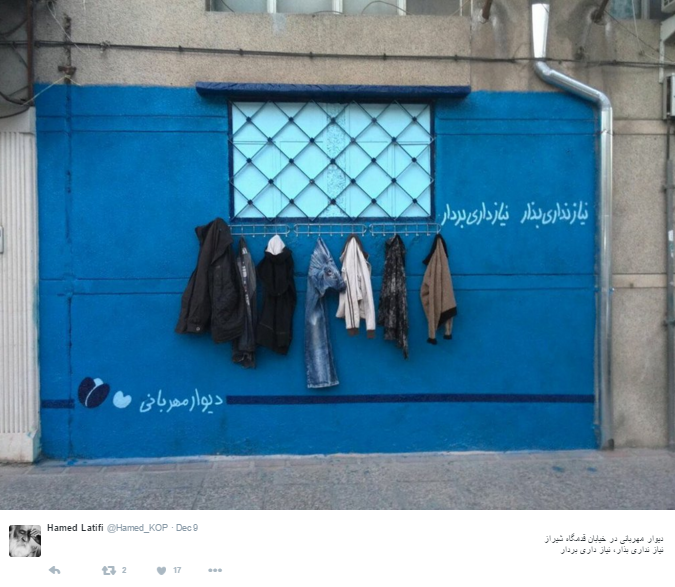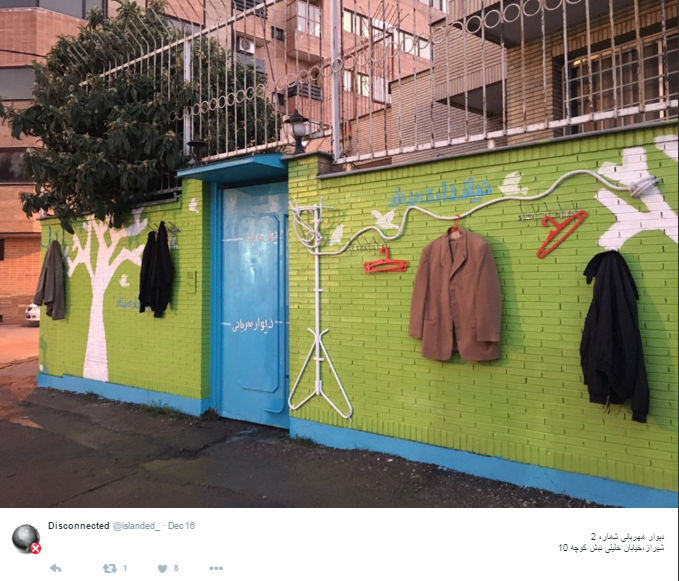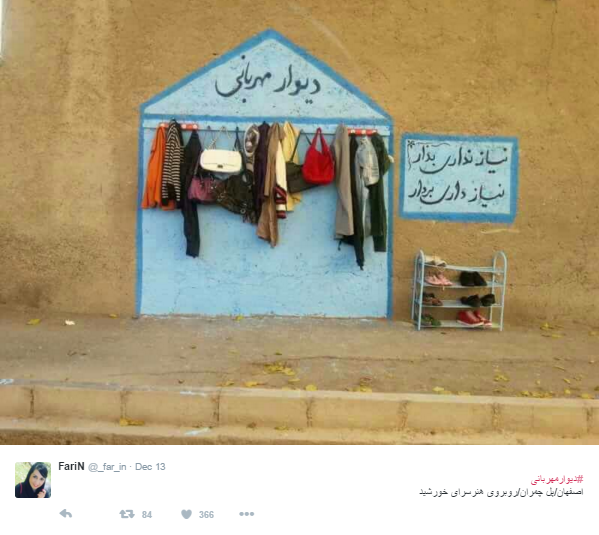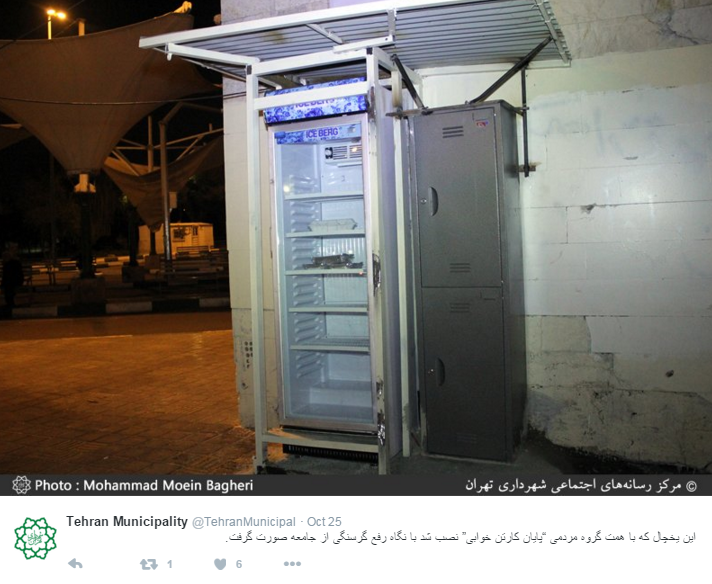Iranians spontaneously create 'walls of kindness' to help the homeless
- Published

Faced with cold weather and a troubled economic situation, Iranians are organising spontaneous outdoor charity drives.
But the "walls of kindness" appearing in major Iranian cities have also generated a debate online about efforts to help the poor.
The idea seems to have started in the north-eastern city of Mashhad, where someone installed a few hooks and hangers on a wall, next to the words: "If you don't need it, leave it. If you need it, take it." Donations of coats, trousers and other warm clothing started to appear.
The person who initially set up what came to be known as the "wall of kindness" wishes to remain anonymous, according to a local newspaper. But the idea quickly spread to other cities, fuelled by thousands of Iranians on social media.

Follow BBC Trending on Facebook
Join the conversation on this and other stories here, external.

The drive increased in popularity as severe cold weather recently engulfed the country. Photos of walls across the country have been posted by several users, who are asking their fellow citizens not to "let any [homeless people] shiver in the cold this winter."
"This is a great initiative. Hope it spreads across Iran," said, external one Facebook user. "Walls remind us of distance but in some streets in Shiraz they brought people closer to each other," said, external another, citing the southern city where the second such wall sprung up.

The 'wall of kindness' in Shiraz
However, some have taken this spontaneous show of charity as a sign that the government isn't living up to its pledges.
"People are helping each other out in a country with so much wealth. Those in charge seem not to share similar concerns as that of the people," said one Facebook user, external. "If only we had wise and caring statesmen, we would not have a single needy person in this country with this amount wealth we have," another one complained.
Despite promises of a better future by Iran's President Hassan Rouhani and the government's efforts to bring the country out of its international isolation following the landmark nuclear deal in July, Iran is still grappling with a recession, the effects of sanctions and sluggish employment. Many ordinary Iranians are badly affected by the situation and reports say that the number of the homeless in major cities has risen as a result.

This 'wall of kindness' sprung up in Esfahan City
Official figures suggest that around 15,000 are homeless in Iran, although other reports say there's that many in the capital alone, external and that the total figure is much higher. Various official organizations are in charge of providing welfare to the homeless, who are described in Iran as "cardboard sleepers."
But there are questions about how transparent and effective these initiatives are, which partially explains why people have decided to take the matter into their own hands.
"We need to do it ourselves. Life is too short. Be kind as much as you can," one Instagram user said, external. One comment on Facebook read, external: "We, the people, are the media. By sharing [photos] of these kindness walls, we showed that we make the news, if we are resilient."
The "wall of kindness" idea is similar to another citizen-driven initiative, called "Payan-e Kartonkhabi", external, ("ending homelessness"), where fridges have popped up on city streets so that people can leave food for the homeless.

A 'Payan-e Kartonkhabi' fridge on a Tehran street

In 2013 Ethan Couch pled guilty to killing four people after he crashed his truck while driving drunk. READ MORE
You can follow BBC Trending on Twitter @BBCtrending, external, and find us on Facebook, external. All our stories are at bbc.com/trending.